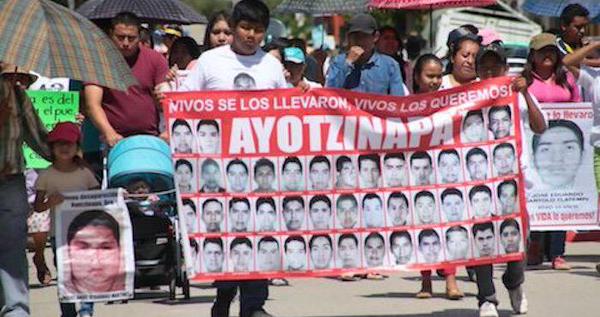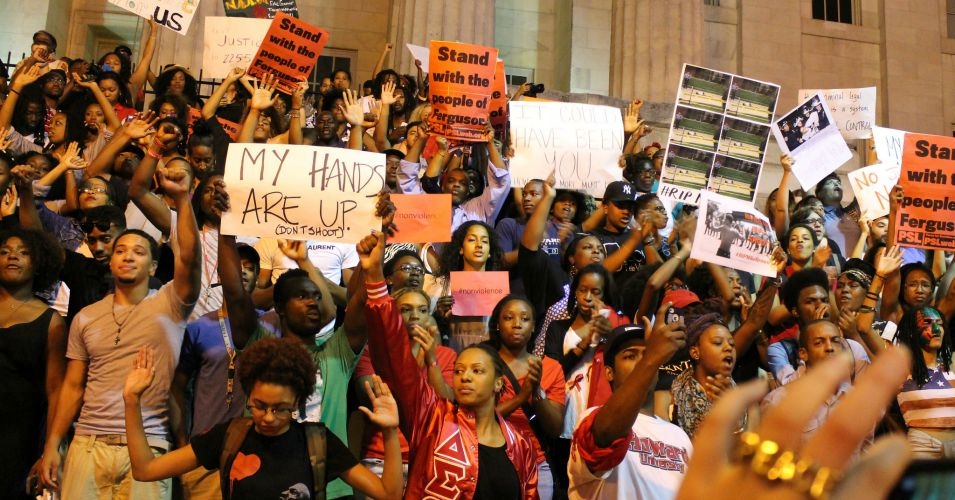This week, San Diego hosts ‘a festival of closed-door deal-making by politicians, corporate executives and lobbyists’
Written by Deirdre Fulton, staff writer for Common Dreams. Published 7-23-15.

Photo via YouTube
Fighting to protect dark money. Attacking federal efforts to rein in carbon pollution. Undermining local democracy.
These are just some of the “hot topics” on the agenda this week as conservative lawmakers, corporate lobbyists, and top GOP candidates from around the country gather in San Diego for the American Legislative Exchange Council (ALEC)’s annual meeting.
“A dark cloud is headed our way in the form of a shadowy lobbying organization that buys loyalty from state legislatures with untraceable corporate dollars and threatens the very fabric of our democracy,” San Diego County Democratic Party chair Francine Busby wrote in advance of the conference.
ALEC, Busby explained, “is a ‘bill mill’ funded by corporations and billionaires. It creates ‘model legislation’ by and for industries, which right-wing legislators then take back to their statehouses and enact into law.”
Miles Rapoport, president of the grassroots advocacy organization Common Cause, described the meeting as “a festival of closed-door deal-making by politicians, corporate executives and lobbyists,” at which “[t]hey gather to do the public’s business in private, fashioning legislation that undercuts the public interest in things like clean air and water, quality public schools, economic fairness and participatory democracy.”
It was with these charges in mind that more than 1,000 labor, social justice, and environmental advocates rolled out the unwelcome mat for the ALEC legislators and lobbyists on Wednesday, saying they didn’t want the corporate-backed group in their city.
“This is a no ALEC zone. I mean, we don’t want ALEC in our city or, quite frankly, in our state,” Mickey Kasparian, president of the United Food and Commercial Workers, said at the rally in downtown San Diego. “This is California. We fight for workers’ rights. We fight for affordable healthcare.”
But as the Center for Media and Democracy’s Brendan Fischer pointed out this week, “[i]n many ways, San Diego is an appropriate setting for ALEC’s conference.”
The city has served as a “petri dish for ALEC’s agenda,” he said, citing a successful and corporate-backed campaign that forced the city council to rescind a popular minimum wage measure.
Meanwhile, environmentalists warn that the draft conference agenda indicates that ALEC will pursue a familiar course in the coming year. According to Aliya Huq, climate change special projects director for Natural Resources Defense Council, the group is pushing measures to “defend polluters, hinder clean energy development, and obstruct climate solutions.”
Model bills up for discussion this week, Huq wrote, include the “State Power Accountability and Reliability Charter (SPARC),” which seeks to chip away at the EPA’s carbon pollution limits on power plants; the “Act Providing Incentives for Carbon Reduction Investments,” aimed at weakening and delaying existing state renewable energy standards; and the “Resolution Concerning Special Markets for Direct Solar Power Sales.”
This final bill, Huq writes, “is a real gem in ALEC’s long-running strategy to subvert solar markets.”
But “[r]ooftop solar gives consumers choice; shouldn’t we be working to make it available to more people not fewer?” Huq asked. “Furthermore, Econ 101 taught us that the hidden costs of fossil pollution is a market failure, and solar incentives level the playing field for clean energy to protect public health and the environment. These attacks are most likely coming from vested polluter interests (including some ALEC members who are actual regulated monopolies) that want to protect their profits.”
In a separate blog post on Monday, CMD’s Fischer noted that ALEC’s new offshoot focused on local government, the American City County Exchange (ACCE), will also meet in San Diego this week.
“Local democracy has led to some significant policy wins in recent years, with cities like Philadelphia guaranteeing workers paid sick days, and places like Denton, Texas banning fracking,” Fischer wrote. “ALEC’s response to cities and counties acting as laboratories of democracy has traditionally been to crush it, through state ‘preemption’ laws that prohibit local governments from raising the minimum wage, or regulating GMOs, or building municipal broadband.”
With ACCE, Fischer charged, “ALEC and its corporate backers are taking the fight directly to the local level, urging city and county officials on the one hand to give up their authority to protect the health and economic well-being of their constituents, and on the other to push policy measures to advance corporate interests.”
According to news reports, two Republican presidential hopefuls—Wisconsin Gov. Scott Walker and Mike Huckabee, the ex-Arkansas governor—are scheduled to speak at the conference on Thursday. Sen. Ted Cruz (R-Texas) canceled his scheduled Friday appearance.
This work is licensed under a Creative Commons Attribution-Share Alike 3.0 License.










